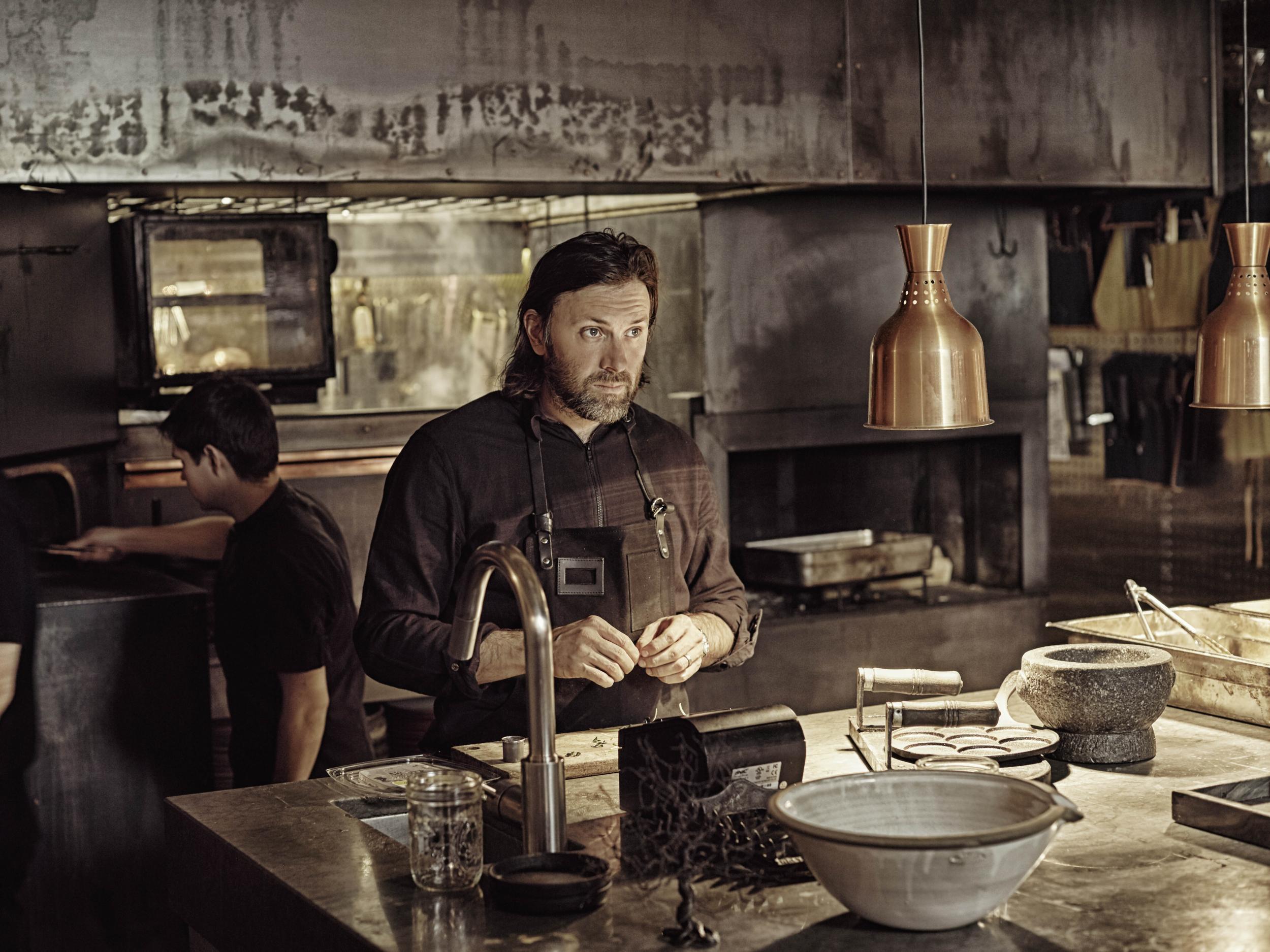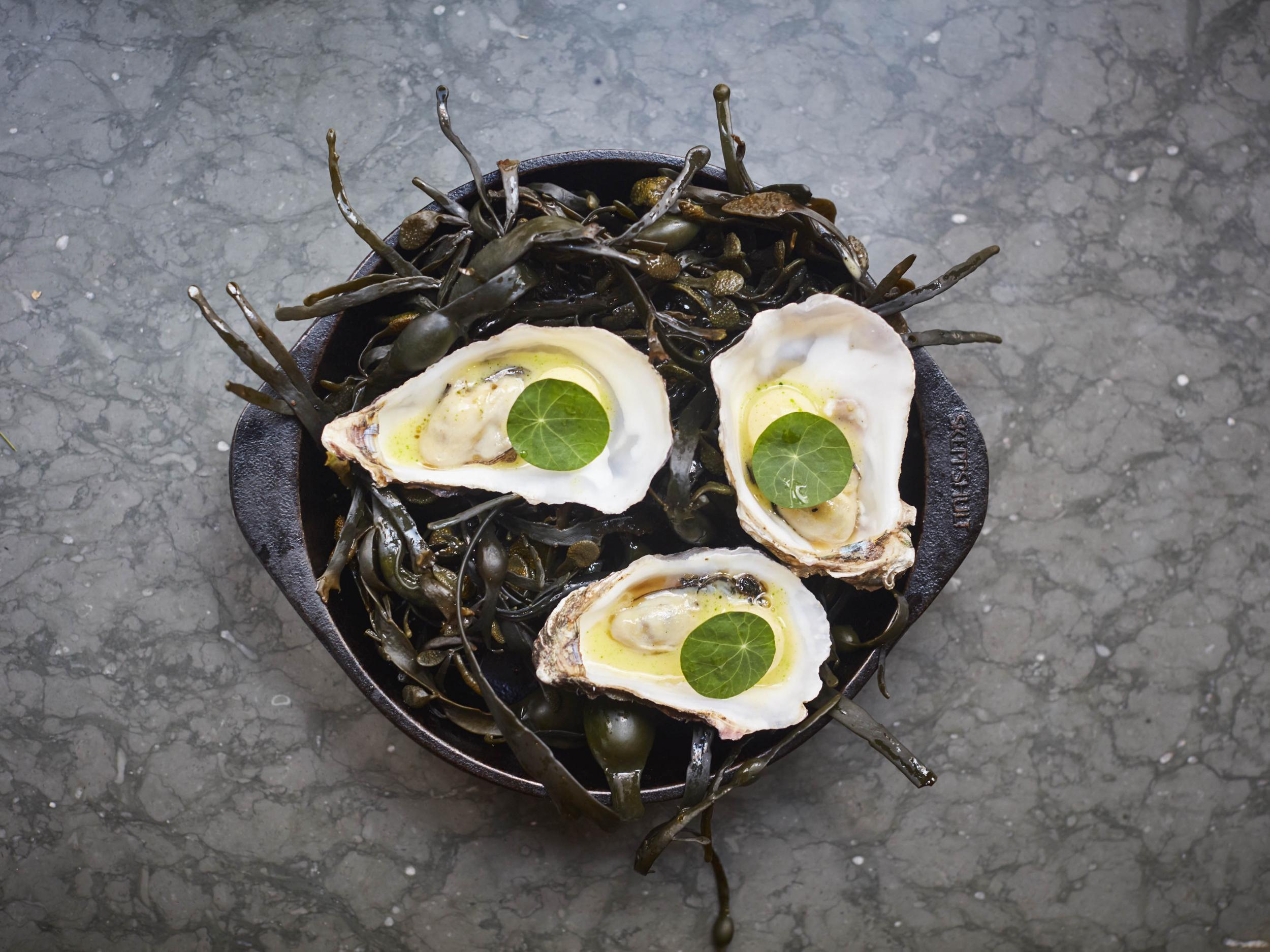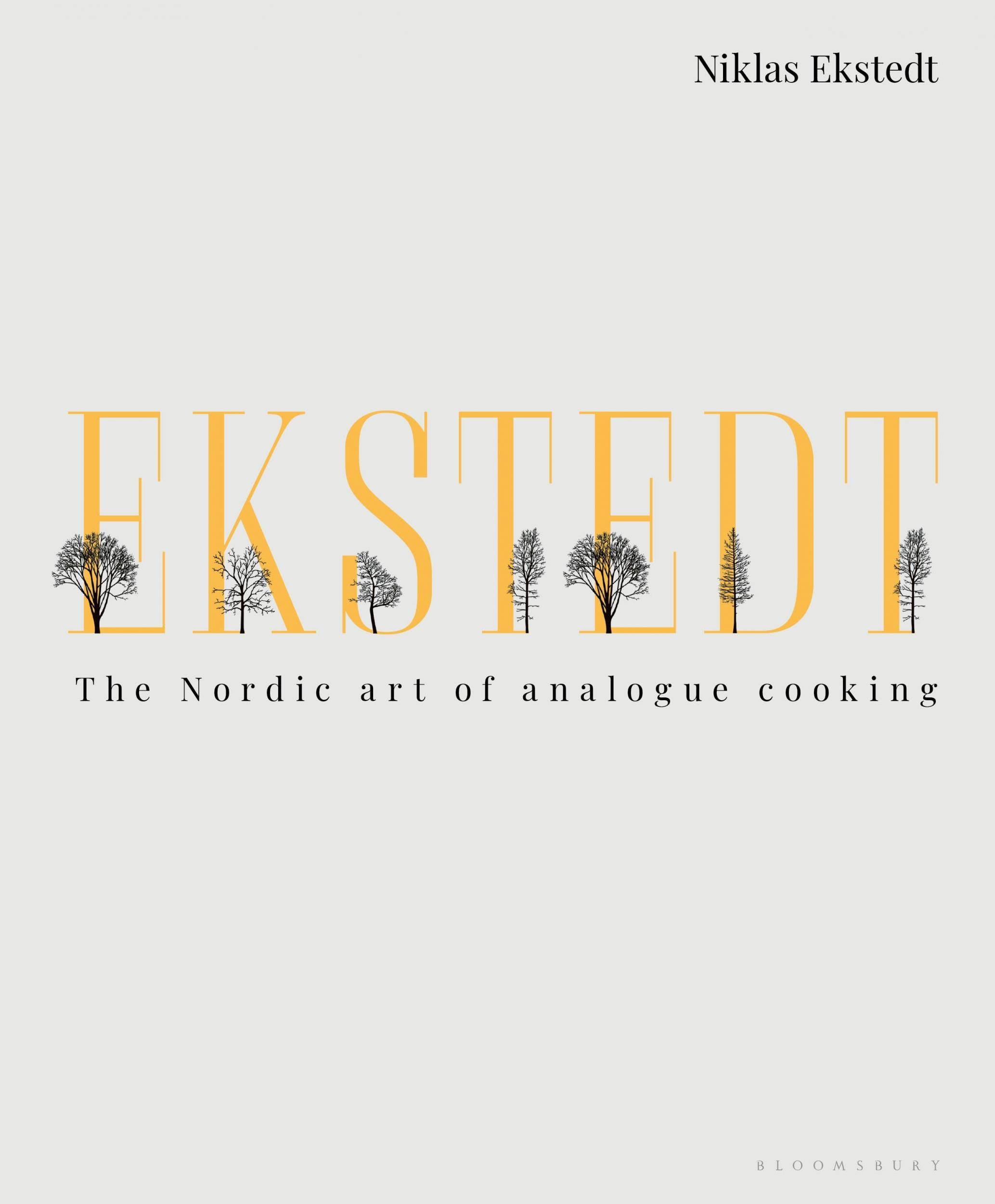The Independent's journalism is supported by our readers. When you purchase through links on our site, we may earn commission.
Chef Niklas Ekstedt on how ‘analogue’ techniques modernise cooking without technology
The Swedish chef speaks to Emma Henderson about being able to keep his restaurant open during the pandemic, why potatoes are his desert island ingredient and working at Spain’s famous El Bulli restaurant


You opened your first restaurant aged 21, and it was later listed as the best restaurant in Sweden – how did this feel and how do you think you achieved it?
I wouldn’t be where I am today without the support my parents gave me for that first restaurant. Both their financial and emotional support meant I had the confidence to open a restaurant exactly how I wanted.
I was also very young and naive then which meant I had no distractions and could focus solely on making the restaurant a success.
Sweden’s restaurants managed to stay open during the pandemic – what did you have to put in place to make sure they stayed open?
Fortunately with Ekstedt being a fine dining restaurant we were already largely compliant with social distancing; at least 1.5m between tables and plenty of room for both front and back of house staff to operate safely.
Due to our size we weren’t able to have more than 50 people on the premises at any one time, however the restaurant itself is actually only 35 covers so that wasn’t a problem!
How different do you think the country’s restaurant industry would be now in Sweden if restaurants were forced to close for months?
While restaurants have stayed open in Stockholm, other forms of entertainment have closed, sports games, theatres, etc, so there isn’t much else to do but eat out in the city!
It’s hard to say as we have obviously been open throughout but can look to our neighbours Denmark and Norway, who have been on lockdown, for an indication of the effects of closures.
Ironically the fine dining scene seems to have emerged a lot healthier than the mid-market restaurants, whether this is because diners feel safer as these restaurants already have a distance model with more space, or because the clientele may be more secure economically and therefore more inclined to eat out. I’s hard to tell, but definitely a combination of many factors.
Your latest cookbook is called The Nordic Art of Analogue Cooking – what is analogue cooking and why is it so important to you?
Analogue means I focus is on the techniques of how we used to cook before modern technology and ensuring that knowledge and approach to preparing produce is brought into the modern day.
For me it is about being honest and transparent with what I do as a chef. Years ago, what we consumed was dictated by the seasons and the local produce available to us at that time, analogue cooking embraces this and really focuses on taking care of the local products and preparing them in the best way possible.
Scandi cooking has been so focused on the end result for so long, we’ve started to forget our history, the techniques we mastered and how to utilise what we as a country produce. I believe it is so important to make the old way of cooking contemporary again.
Does cooking in this way mean you don’t use any technology for cooking in your restaurants?
We do have fridges and a couple of blenders but that’s about it!
How does Nordic cooking over fire differ to Texas BBQ or other forms of it?
The “slow and low” approach that is so synonymous with Texas BBQ was actually introduced to the stated by Scandi and German immigrants. The smoking of sausages, hams, bacon, it’s all eastern influences. Obviously it has developed over the years to include sweeter marinades and sauces but the core techniques of meat over fire have the same origins.

What do you do to make your take on new Nordic cuisine different to anyone else’s?
My approach to the produce and the techniques used to prepare dishes is unlike most others. While flavour and creating delicious dishes is of course important, my focus is on the process, less so the end result.
You worked at Spain’s most famous restaurant, El Bulli, which has three Michelin stars – how did this restaurant, which is very different to your own, help shape your career?
Working at El Bulli taught me a lot, the business side of running a restaurant and how to instil the right work ethic in your staff.
They also taught me that it’s OK to take food so seriously and not compromise on what you as a chef want to serve.
It was also a lot of fun, meeting people from all over the world who share your passion results in some incredible friendships that I cherish to this day.
How did you get involved in working on the Crazy Delicious TV show?
I just got a call out of the blue! It was an honour to be asked and Heston, who I’ve known for over 20 years, and I talked at length about the show beforehand. We were so excited to start filming and it was an experience unlike any I’ve ever had.
What’s your desert island ingredient?
Potatoes – they’re so versatile, healthy and would provide the hit of carbs and vitamins that you’d need to keep going.
Do you have a favourite type of fuel to cook over, and what dish do you most love cooking on it?
My go to fuel is birch wood as it is one of the most sustainable woods available here in Sweden.
From there I usually add additional flavours and other woods such as pine to create the flavours I need.
One of my favourite combinations is birch and juniper. The flavour it creates is incredible – we cook celeriac in the live fire for around an hour until its beautifully charred and then serve it with brown butter and local, foraged mushrooms.
What do you think is the biggest problem the restaurant industry faces?

The pandemic, the uncertainty it brings and the lack of free travel.
While restaurants are currently doing OK, they are only able to cater to locals and a handful of tourists.
While that might tide them over for a couple of months, it isn’t going to be enough to sustain them indefinitely.
Where do you look to for inspiration for new dishes and techniques?
The Royal Library in Stockholm has the most wonderful collection of old cookbooks, I tend to go for those from 1750 – 1830. I can be in there for hours on end, discovering recipes from hundreds of years ago that are still so relevant today.
What’s next for you in 2020 – or 2021?
I am currently working with the forestry industry in Sweden to see if we can leverage more of the forests in our cooking, making them as sustainable as possible. Utilising more than just the wood for fire, Nordic pine is difficult to use in fire as it sparks like a firecracker so exploring what can we do to ensure these resources aren’t going to waste.
Visit Niklas Ekstedt’s website, or follow him on Instagram. ‘Ekstedt’ by Niklas Ekstedt is out now
Join our commenting forum
Join thought-provoking conversations, follow other Independent readers and see their replies
Comments
Bookmark popover
Removed from bookmarks